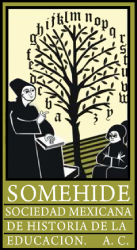Historical development of education in Guatemala in the years 1945-1951
DOI:
https://doi.org/10.29351/amhe.v1i1.227Keywords:
Freedom, education, democracy, government, schoolAbstract
The study on the historical development of education in Guatemala during the years 1945-1951 was prepared from the perspective of the government, because the documentary material was at hand. The objective of the work is to make a brief historical analysis of the area of Education in the aforementioned historical period. For its realization, the work was sectioned to be able to perform the analysis. The approach of the problem of the purposes of education: legitimacy, possibility, and conception of man. The economic and social context of the historical period, the ideas of democracy and how they were handled by the actors in this process. By way of conclusions of the work, the problem of the possibility of education is put into practice from the perspective of pedagogical optimism. The school as a materializing instrument of the purposes of the Church or the State. In the Arévalo government, school and life were harmonized. The legitimacy of education considers that adult generations have the right to educate, to the extent that they provide the tools for development and the preeminence that should be given to the spiritual plane over the natural plane. It considers man as a being that comes to life within the community. The principles from which materialization worked, in the area of Education, were the quality of life, the generalization of knowledge, national identity, and openness to scientific and technological progress, because education is the factor that influences and is influenced within the social dynamics and is a legitimate and possible action.
References
Arévalo, J. (1945). La pedagogía de la personalidad (tesis de doctorado, Universidad Nacional de la Plata, Argentina).
Arévalo, J. (1974). La personalidad, la adolescencia, los valores. Guatemala: Cenaltex.
Arévalo, J. (1987). Seis años de gobierno (tt. I y II). Guatemala: Cenaltex.
Arévalo, J. (1988). Escritos complementarios. Guatemala: Cenaltex.
Dewey, J. (1982). Democracia y educación. Buenos Aires: Losada.
Fullat, O. (1997). Filosofía de la educación. Madrid: Síntesis Educación.
Gallo, A. (1980). Identidad nacional. Guatemala: EDITA.
García, E. (2003). Filosofía de la educación en el pensamiento de Juan José Arévalo (tesis de maestría, Universidad de San Carlos de Guatemala, Guatemala).
García, O. (1980). Concepto de libertad en la obra de Max Scheller (tesis de licenciatura, Universidad de San Carlos de Guatemala, Guatemala).
Mantovani, J. (1979). La educación y sus tres problemas. Buenos Aires: El Ateneo.
Ordoñez, J. (1996). Políticas generales y práctica de la educación. San José: Universidad Nacional de Costa Rica.
Sciacca, M. (1957). El problema de la educación. Barcelona: Edit. Luis Miracle.
Downloads
Published
How to Cite
Issue
Section
License
Todos los contenidos del Anuario Mexicano de Historia de la Educación se publican bajo una licencia Creative Commons Atribución No Comercial 4.0 Internacional (CC BY-NC 4.0), que permite compartir (copiar y redistribuir el material en cualquier medio o formato) y adaptar (remezclar, transformar y construir a partir del material) para fines no comerciales, dando los créditos a los autores y a la revista, tal como lo establece la licencia.
La política de acceso abierto y de licencias con “algunos derechos reservados” no niega la propiedad intelectual ni los derechos de los autores respecto a sus artículos, pues ellos son los titulares, en tanto que el Anuario Mexicano de Historia de la Educación no los reserva para sí ni para la institución editora, ya que se apegan a movimientos de acceso abierto como los Principios y Valores del Sistema de Información Científica Redalyc - Red de Revistas Científicas de América Latina y el Caribe, que pugnan por la eliminación de las políticas de embargo para que el autor retenga los derechos de su obra (principio número 8). Así como las políticas de acceso abierto del Directory of Open Access Journals (DOAJ).
Los autores podrán distribuir su propio material en cualquier otro medio o soporte, siempre y cuando sea para fines no comerciales, informando a los editores que el trabajo será publicado nuevamente y dando el crédito correspondiente al Anuario Mexicano de Historia de la Educación.
La publicación en el Anuario Mexicano de Historia de la Educación, por su carácter gratuito, no da derecho a remuneración económica alguna a los autores, ni a los dictaminadores.
Los lectores podrán reproducir (copiar), comunicar, distribuir o hacer obras derivadas de los artículos o colaboraciones publicados en el Anuario Mexicano de Historia de la Educación en los siguientes casos:
- Para fines públicos.
- Sin fines comerciales.
- Que se reconozca la autoría de la obra y se cite su origen con información completa: Apellido/s del autor, inicial/es del nombre/s. (año de publicación). Título del artículo. Nombre de la revista, volumen (número de ejemplar), página inicial del artículo-página final del artículo. DOI o URL (formato sugerido de acuerdo al estilo APA en su versión más reciente).
El cuerpo editorial del Anuario Mexicano de Historia de la Educación asumirá el compromiso de notificar oportunamente a los autores sobre cualquier cambio de ubicación de los artículos en el sitio (cambio de dirección URL o de conexiones para identificar el artículo).
Los autores, al enviar sus trabajos para su posible publicación, deberán tomar en cuenta los puntos anteriores, mismos que se contemplan en el Acuerdo entre autor y el Anuario Mexicano de Historia de la Educación.











